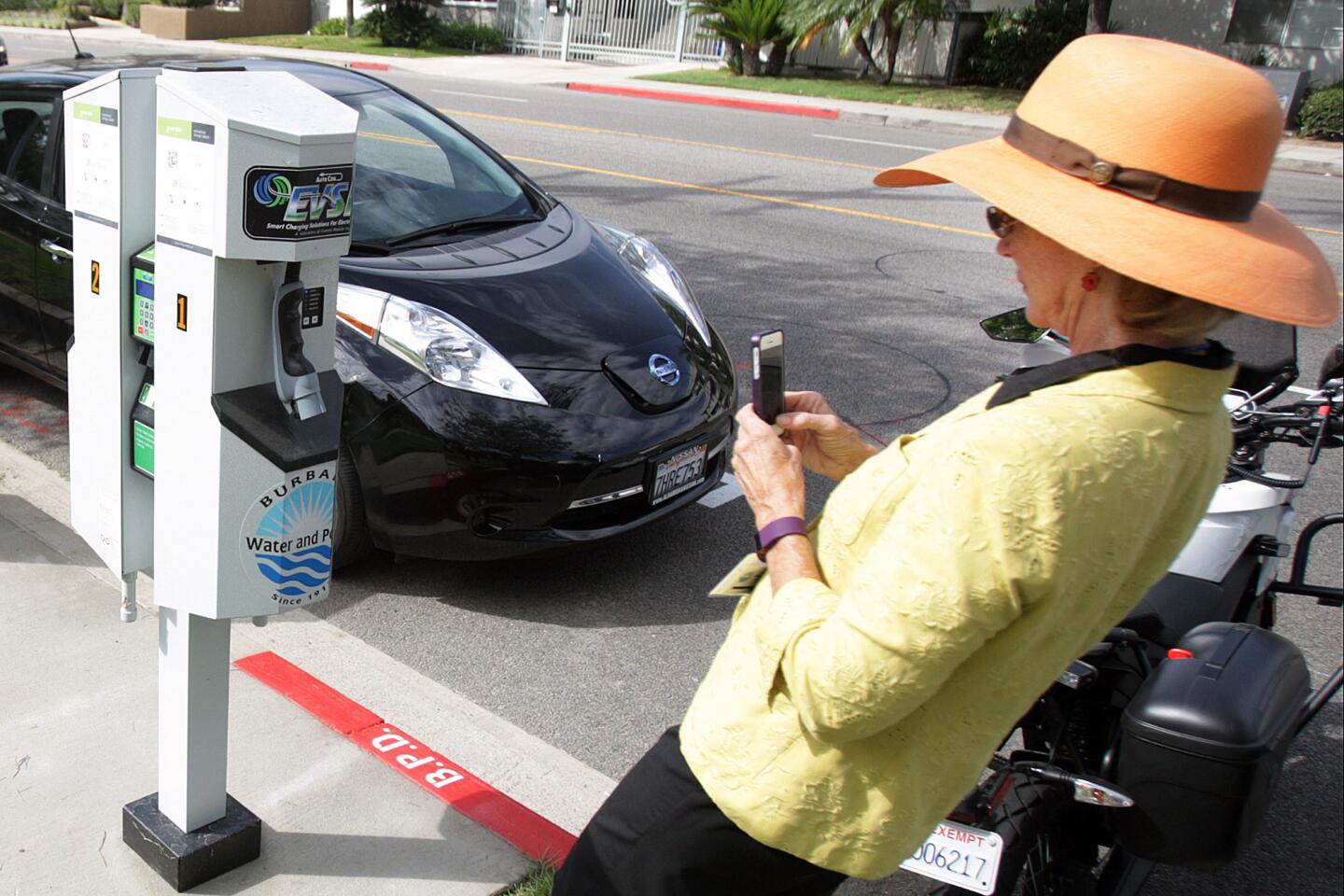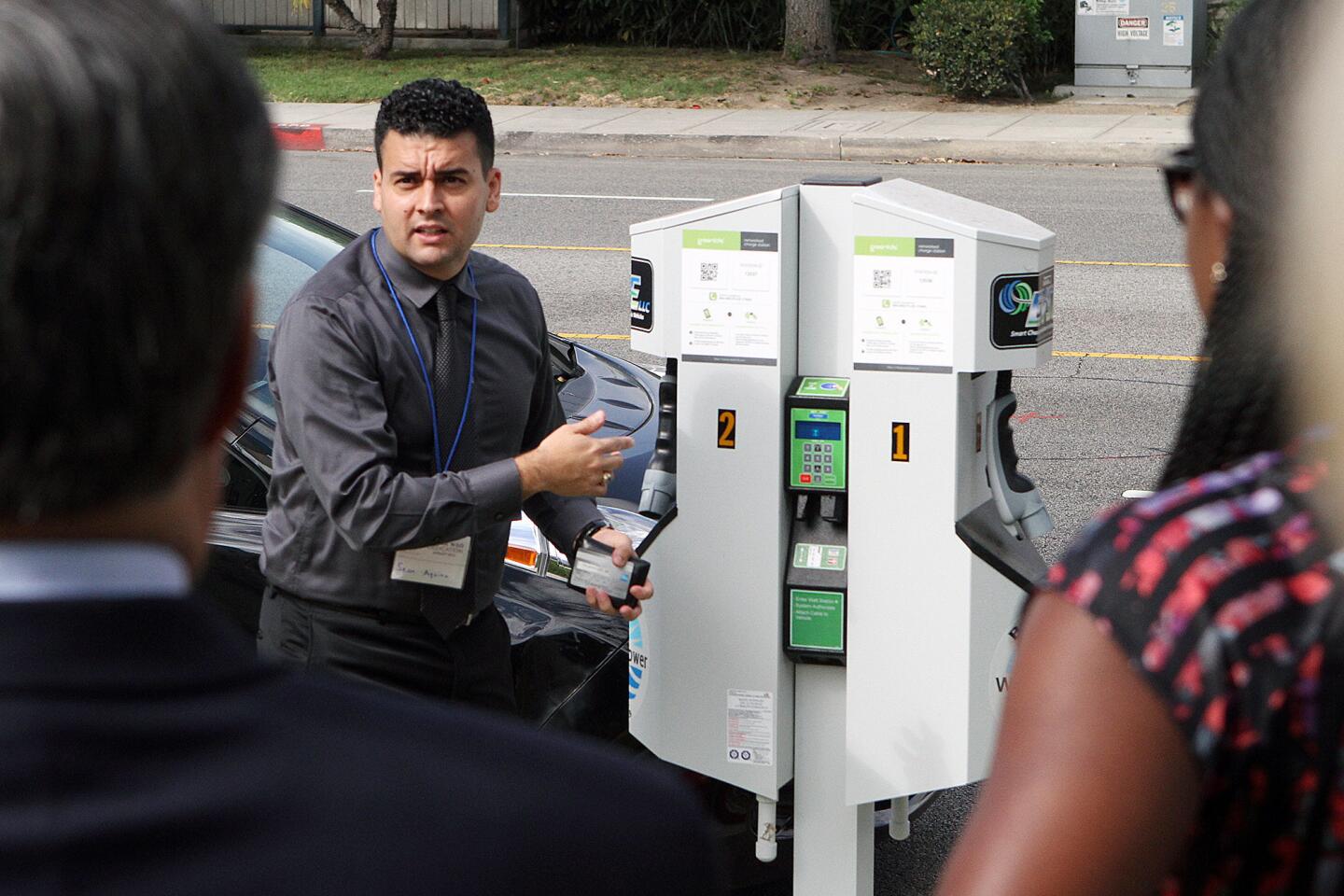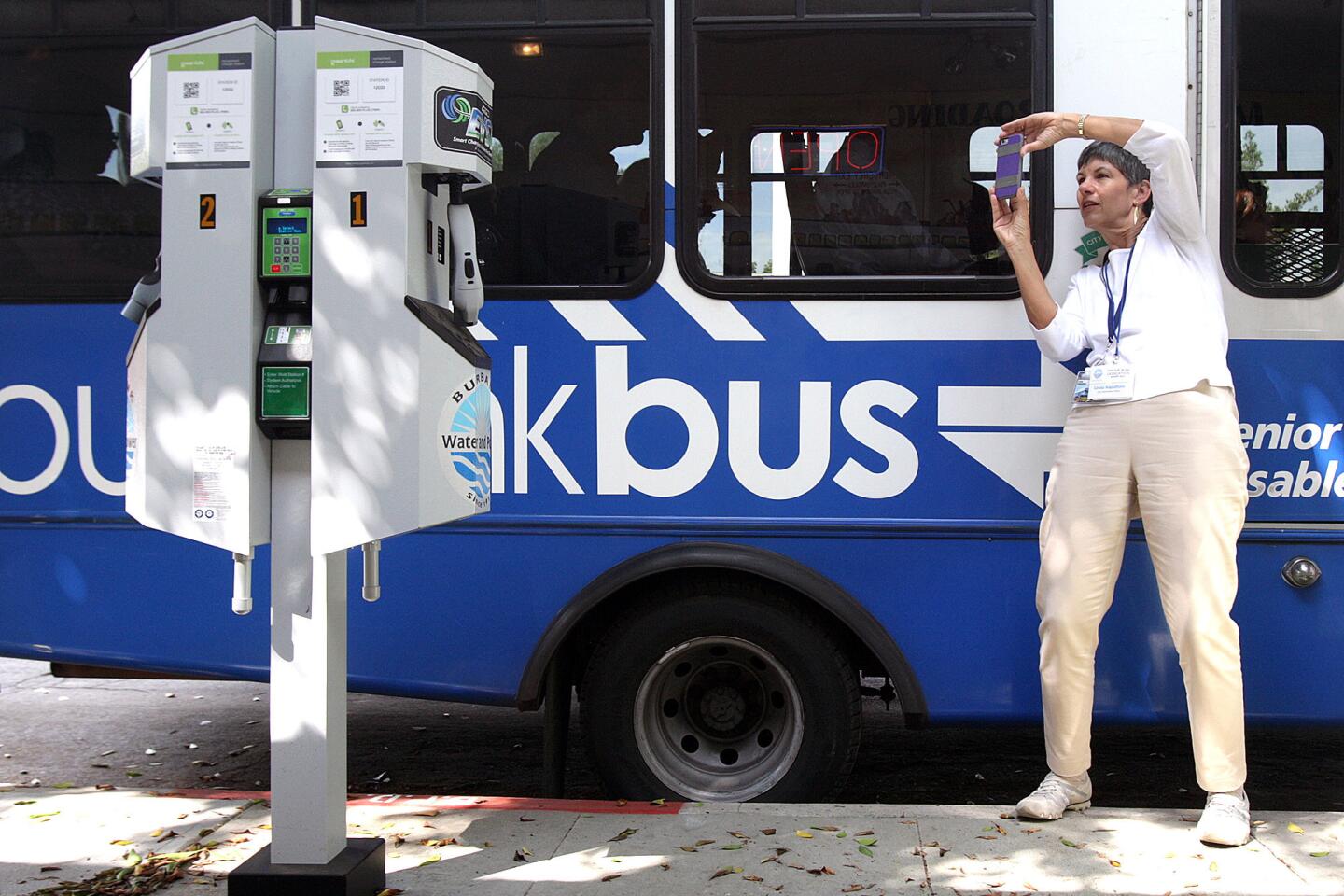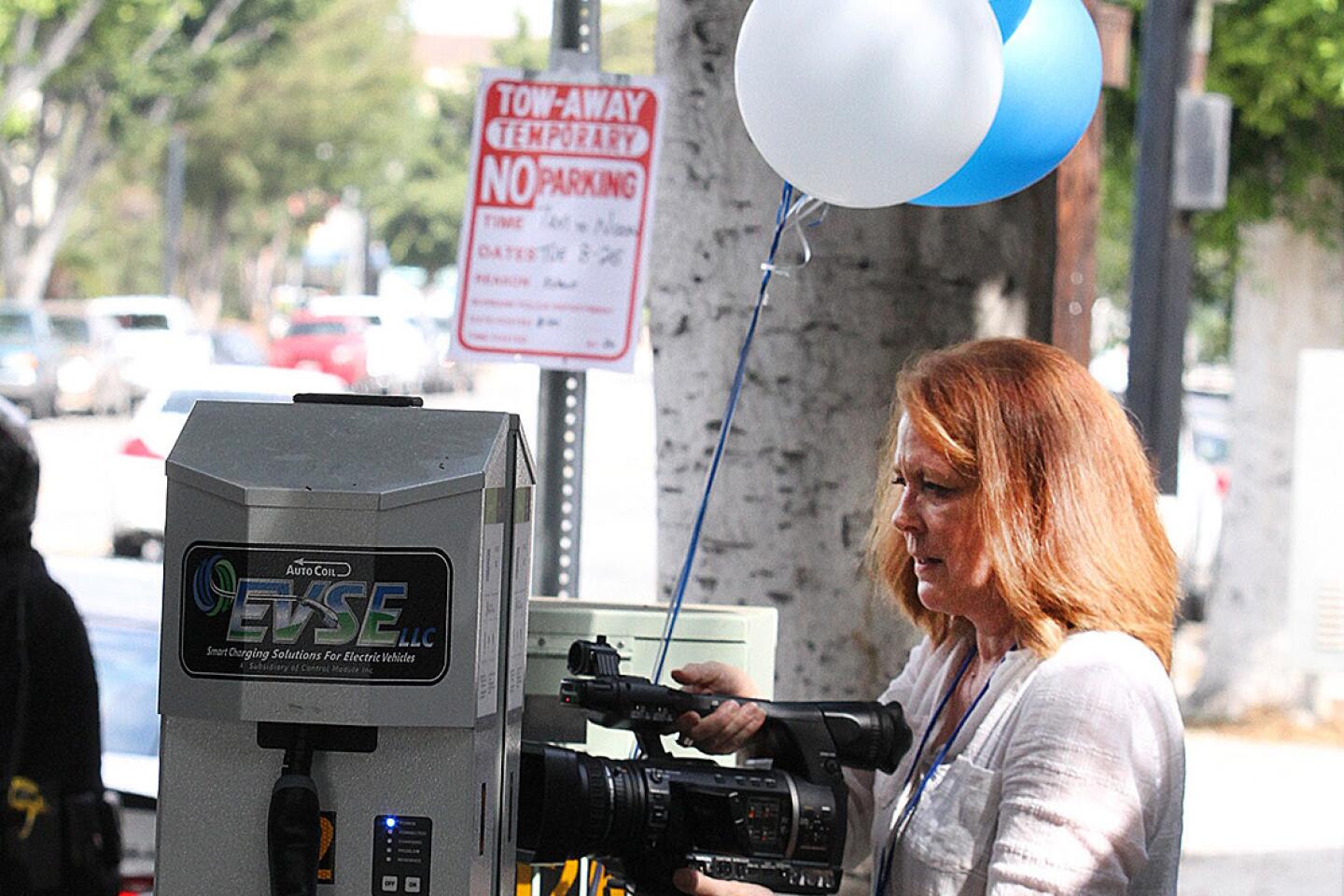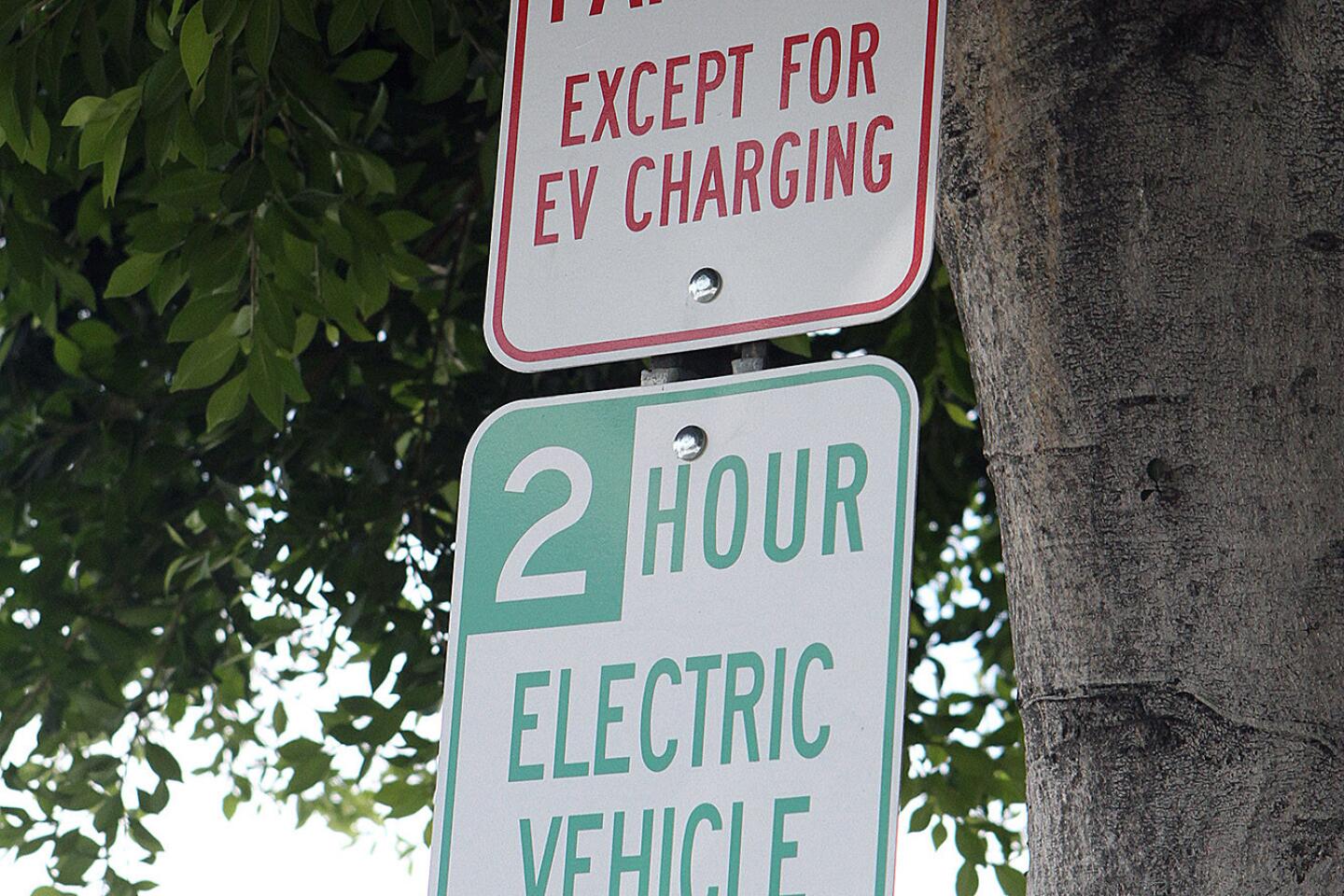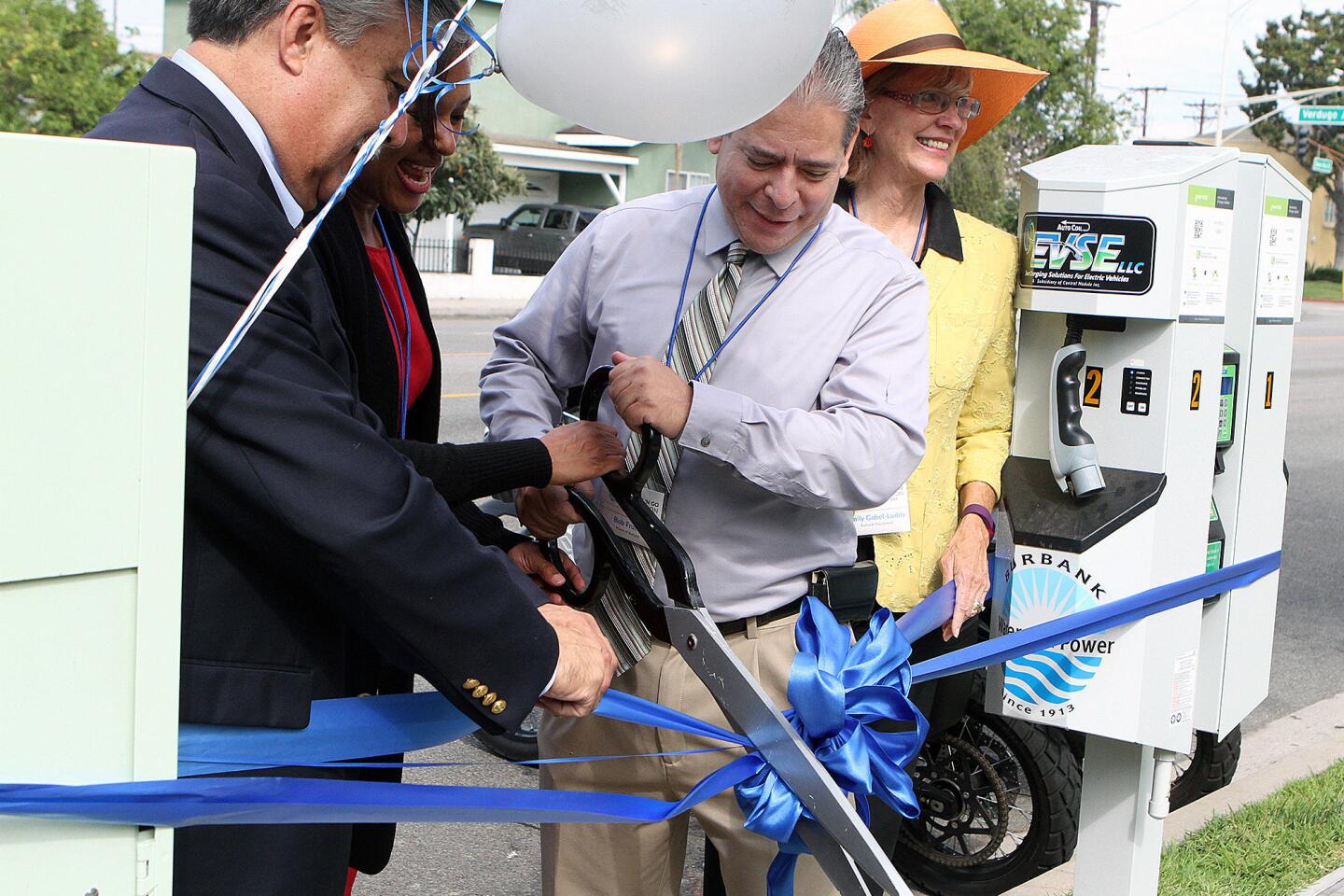Electric car charging stations power up in Burbank
- Share via
In bringing electric vehicle chargers out from the oft-hidden corners of parking garages where they have typically been found, Burbank may have taken the lead in the nation for the number of public, curbside charging stations.
Burbank Water and Power crews installed the stations during the month of July, part of a project funded largely through a grant from the California Energy Commission. Last week, the utility hosted state and local officials at a dedication ceremony and demonstration of the technology.
PHOTOS: Electric charging stations unveiled
The eight stations throughout the city provide charging capability for 16 electric vehicles at public spaces with a two-hour limit while charging. Energy Commissioner Janea Scott said it’s one of the first curbside projects in the state she’s aware of, if not the first, and “for sure the first CEC funded.”
The commission contributed nearly $165,000 to the project through a program that awards $100 million a year on efforts to battle greenhouse gas emissions and air pollution by “transforming” the state’s transportation sector. The city provided roughly $65,000 in funding as well.
“I like the really public nature of it,” Scott said. “That may help more people to know [chargers are] something available to them.”
Scott said the commission aims to encourage drivers to “swap” gas-powered vehicles for zero-emission electric vehicles. She said making the charging infrastructure available and more visible will help reduce “range anxiety,” the worry that electric vehicle batteries will run dry before reaching a destination or charging point.
Charging up at the stations will cost users about 17 cents per kilowatt-hour during off-peak hours or 30 cents per killowatt-hour during the peak hours of 4 to 7 p.m. on weekdays in the summer.
Researchers from UCLA’s Luskin Center for Innovation helped recommend the locations for the chargers in Burbank, based in part on where users are or will likely be concentrated in the future, said Alex Turek, a researcher at the center. Travel patterns and existing availability of electric vehicle chargers were other factors considered.
Several public and private parking lots in Burbank, as in other cities throughout the country, have had electric vehicle chargers available. Burbank Water and Power first began a program to install the chargers in public lots five years ago, but officials believe the latest effort is the first of its type to place the chargers beside public curbside parking spaces.
Shari Lasick, a grant-writing consultant who helped the city apply for the state funds, said that when she first got involved she did not find any other city in the country with public curbside chargers. That was one detail that attracted her to the project, she said.
Though now some cities have installed curbside chargers, according to data provided by PlugShare, an app and website with a database of more than 26,000 charging stations, there are more curbside electric vehicle charging locations registered in Burbank than in any other city in the country.
The data may be incomplete, however, PlugShare officials said. The database does not have a systematic way to specify whether a public charger is located at a curbside.
With parking scarce in some areas of the city, not everyone is happy that Burbank is setting aside curbside spaces for electric vehicle users.
Turek, the UCLA researcher, said early-adopters of electric vehicles are typically in higher-income brackets. But, he said, business owners may not yet see the stations as an amenity that attracts such customers because they still make up such a small share of the vehicles on the roads.
John Fries, owner of Bicycle John’s on Hollywood Way, said it’s a revenue-generator for the city, but the loss of parking hampers his business, which is a few doors from one of the new charging stations. He said he would have preferred to see the charger installed in the nearby off-street parking lot behind Porto’s Bakery & Cafe.
“What you did is you stole two spaces,” Fries said. “I don’t think people think about [the impact to small business].”
